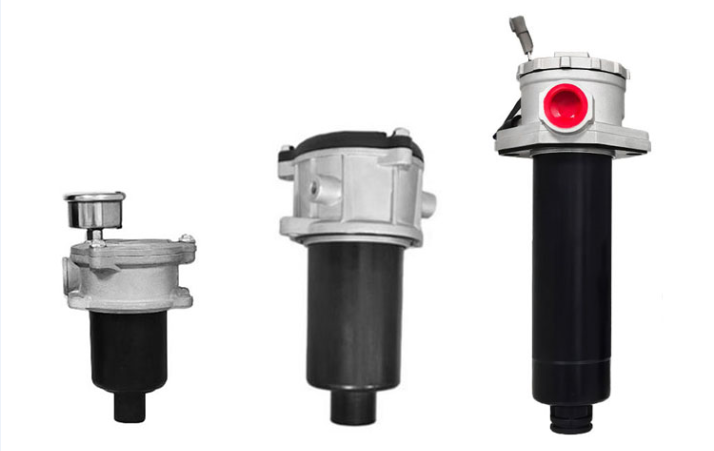Hydraulic filters are crucial components in hydraulic systems, as they help maintain cleanliness by removing contaminants from the fluid. Here are some of the key technical requirements for hydraulic filters:
1. Filtration Efficiency
- Micron Rating: The ability to capture particles of a specific size (measured in microns). Common ratings include 5, 10, 25, and 40 microns.
- Beta Ratio: A measure of how well the filter reduces particle counts at a given size. Higher beta ratios indicate better performance.
2. Flow Rate of hydraulic filters
- Maximum Flow Rate: The maximum amount of fluid the filter can handle at a given pressure drop.
- Pressure Drop: The pressure difference across the filter when fluid passes through it. Lower pressure drops are generally desirable to minimize energy loss.
3. Capacity of hydraulic filters
- Dirt Holding Capacity: The amount of contaminant a filter can hold before its performance degrades or it needs maintenance.
4. Material Compatibility
- Fluid Compatibility: The materials used in the filter should be compatible with the hydraulic fluid to prevent chemical degradation or corrosion.
- Temperature Resistance: Ability to withstand the operating temperature range of the hydraulic system without degrading.
5. Durability and Reliability of hydraulic filters
- Construction Quality: Robust materials and construction methods to ensure long-term reliability under operating conditions.
- Vibration Resistance: Ability to withstand mechanical vibrations common in hydraulic systems without failure.
6. Installation and Maintenance
- Ease of Installation: Design features that make installation straightforward and secure.
- Maintenance Requirements: Indication of how often the filter needs to be inspected or replaced. Some filters have indicators or sensors to signal when maintenance is required.
7. Standards Compliance
- Industry Standards: Conformance to relevant industry standards such as ISO 4572 for filtration efficiency testing and other applicable norms.
8. Size and Fittings of hydraulic filters
- Port Sizes: Compatible with the hydraulic system's port sizes for easy integration.
- Overall Dimensions: Appropriate size to fit within the available space in the hydraulic system.
9. Environmental Considerations
- Recyclability: Materials and design that support recycling efforts to reduce environmental impact.
- Leak Prevention: Features to minimize the risk of fluid leakage, which can be harmful to the environment.
10. Cost of hydraulic filters
- Cost-Effectiveness: Balance between performance and cost to provide value for money over the lifecycle of the filter.
By meeting these technical requirements, hydraulic filters can effectively maintain the cleanliness of hydraulic systems, thereby ensuring their efficient operation and extending their service life.
Quote Inquiry
Contact us!

